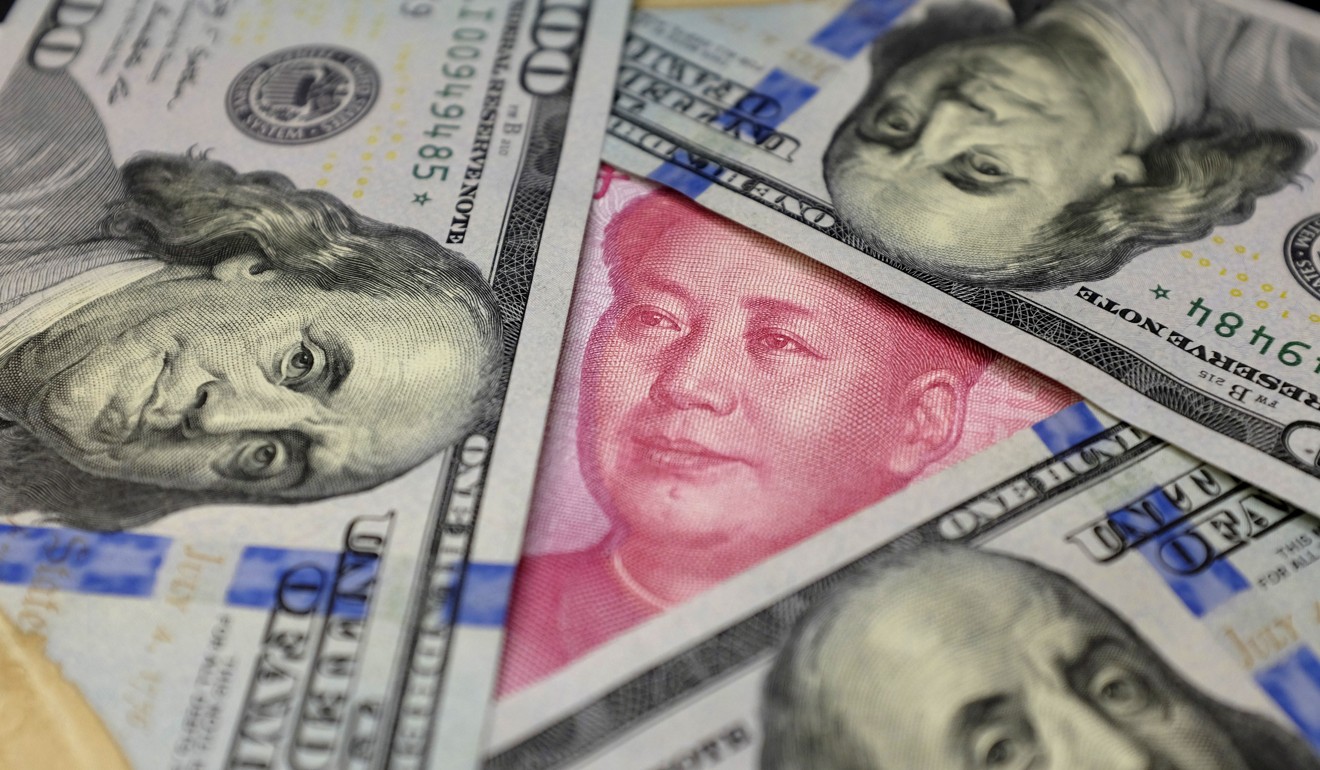
Fake news or intentional leak: is China halting US Treasury purchases?
China could be using a forex portfolio reshuffle as political tactic to temper Trump’s protectionist intentions, analysts say
China’s foreign exchange watchdog has denied on Thursday that Beijing was considering suspending or slowing down its purchase of US Treasuries, refuting a news report the previous day which has weighed on US government bonds and the US dollar.
Bloomberg cited unnamed sources on Wednesday as saying that Chinese officials were reviewing the country’s US$3.1 trillion in foreign exchange holdings, and had recommended halting or slowing purchases of US Treasury bonds due to the declining attractiveness of the asset and rising US-China trade tensions.
The report sent 10-year US Treasury yields to a 10-month high of 2.59 per cent and the dollar index lower to 92.3 on Wednesday night.
The State Administration of Foreign Exchange (SAFE) said on Thursday that the Bloomberg report had “cited a wrong source, or could be fake news”.
“China has been diversifying its forex reserves investments and its investments in US Treasuries is market-driven,” SAFE said on its website.
Whether it was fake news or not, analysts said the drama could be Beijing’s political tactic to temper Trump’s protectionist intentions and manage the scale of future trade disputes. The probability for a significant portfolio change in China’s foreign reserve account was unlikely, they said.
“It could be an intentional leak to warn the Trump Administration that China has some levers to pull in responding to any punitive protectionist measures on trade,” said Aidan Yao, senior emerging Asia economist at AXA Investment Managers Asia.
Yao said there were two factors that could have any bearing on China to slow its purchase of US debt. One was global investors are bearish on the asset “as the Fed is starting to unwind balance sheet and tax reforms are spurring growth and inflation”, he said.
The other was China may “no longer need to hold as much reserves as before” as the country is likely to further liberalise its capital account in 2018, amid the current level of comfort with its currency movement and capital flow.

It could be an intentional leak to warn the Trump Administration that China has some levers to pull in responding to any punitive protectionist measures on trade
ING Bank Greater China economist Iris Pang said it would be no surprise if China wanted to revise its foreign reserves portfolio when global investors started to walk away from US Treasuries whose issuance cost could increase after the tax cut in the US.
“But China is the largest buyer [of US Treasuries], what it says will deeply influence investors’ sentiments. So it could be used as a “one stone killing two birds”, which provides the Trump administration with pressure on both the markets and trade fronts,” she said.
The US administration is considering several new tariffs in the coming weeks, including broad restrictions on steel and aluminium imports and punitive actions against China arising from an investigation into Beijing’s intellectual property practice.
In the past two weeks, two of China’s star companies, Ant Financial and Huawei, have met setbacks in the US market where their investments were being obstructed, triggering a wave of mainland Chinese state media criticisms against the US government for its “protectionism”.
Ant Financial is an affiliate of Chinese e-commerce giant Alibaba Group Holding, which owns the South China Morning Post.
China has the world’s biggest foreign reserves of about US$3.1 trillion by December, which rose slightly in 2017 because of a 6.7 per cent appreciation of the Chinese currency.
The country is also the biggest foreign holder of US government debt, with US$1.19 trillion in Treasuries as of October 2017, according to data from the Treasury Department.

